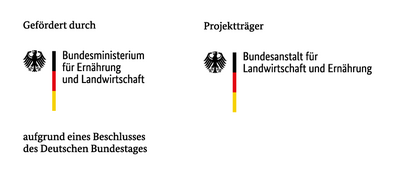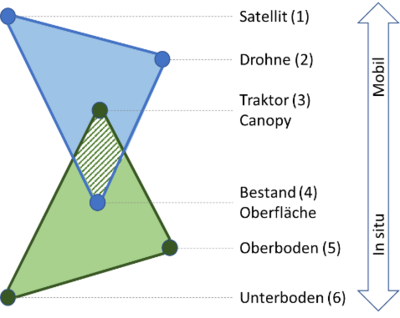Agriculture is a key economic factor in Brandenburg, but the natural site conditions pose major challenges for farmers. Sandy soils, small-scale relief and soil differences as well as increasing drought due to climate change have a negative impact on yield stability. Against this backdrop, digitalization and precision agriculture hold enormous potential that has hardly been exploited to date.
The project “DigiMix-PA: Knowledge-based precision crop production in a mixed farm” addresses precisely this issue. The Leibniz Institute for Agricultural Engineering and Bioeconomy (ATB) in Potsdam is working together with the GeoForschungsZentrum (GFZ) in Potsdam, the University of Potsdam and the Technical University of Berlin to put innovative approaches to precision agriculture into practice. The Leibniz Innovation Farm in Groß Kreutz serves as a future-oriented farm.
Challenges in precision agriculture
Although numerous technologies for precision agriculture are already available on the market, there is a lack of systematic linking of these individual solutions to form an integrated process chain. Moreover, farmers often do not have sufficient practical experience or access to further training formats. At the same time, there is still little scientific knowledge on how the technologies can be combined in an ecologically and economically sensible way.
Goal and planned innovations
Although technology for precision farming has been available on the market for many years, it has only been used to a limited extent to date. One reason for this is isolated technical solutions that are able to control individual measures, but are not brought together in an overall farm utilisation. This means that the full potential of site-specific management cannot be utilised. The aim of the future farm is therefore to set up a concrete practical example of implementation with integrated process chains to determine and demonstrate the typical regional effects of precision plant cultivation on operational processes, the environment and economic efficiency, as well as to build up expertise for regional agriculture and advisory services.




